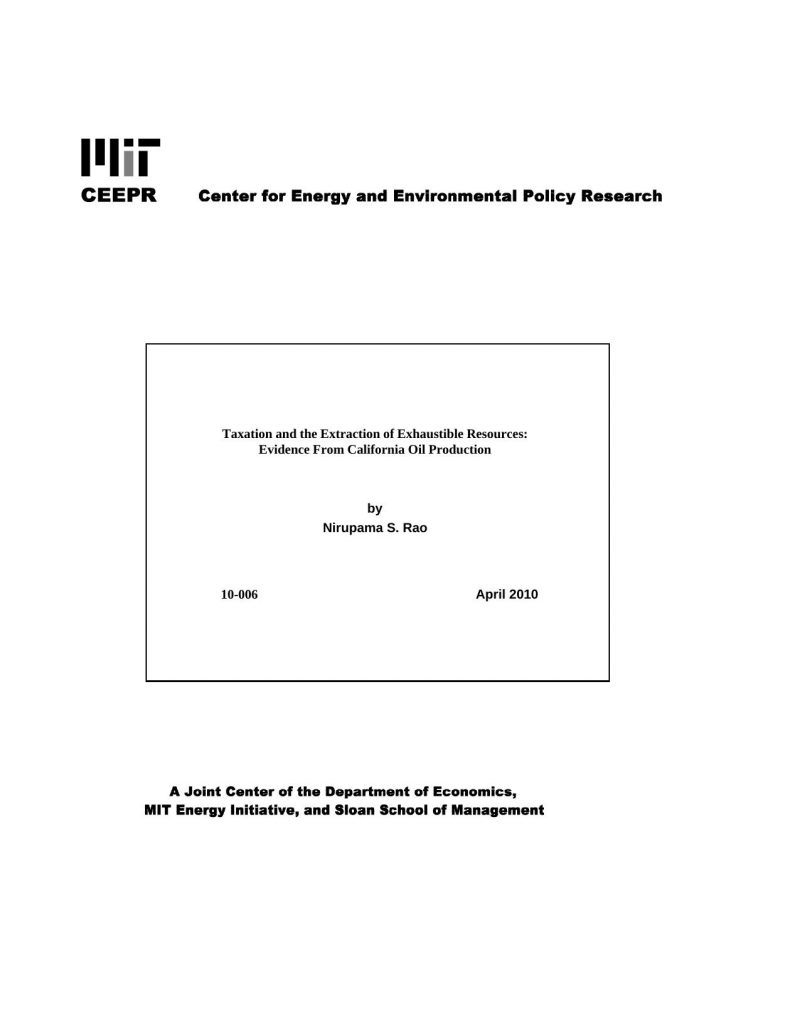Taxation and the Extraction of Exhaustible Resources: Evidence From California Oil Production
Nirupama S. Rao
10-Apr
Rapid increases in oil prices in 2008 led some to call for special taxes on the oil industry. Because oil is an exhaustible resource, however, the effects of excise taxes on production or on reported producer profits may be more complex than in many other markets. This paper uses well-level production data on California oil wells for the period 1977-2008, along with the rich variation in producer prices induced by federal oil taxes and pre-1980 price controls, to estimate how temporary taxes affect oil production decisions. Theory suggests that temporary taxes could lead producers to shut wells, and more generally that they create strong incentives for retiming production to minimize tax burdens. The empirical estimates suggest small estimates of extensive responses to after-tax prices, meaning that wells are rarely shut, but they also suggest substantial retiming of production for operating wells. While the estimates vary with specifications, the elasticity of oil production with respect to the after-tax price is estimated to fall between 0.208 and 0.261. The estimates are used to calibrate a simple model of the efficiency cost of tax-induced distortions relative to the no-tax optimal extraction path. These calculations suggest that a 15 percent temporary excise tax on California oil producers reduces the present value of producer surplus by between one and five percent of the no-tax surplus or between 113 and 166 percent of the government revenue raised, depending on the original life of the well and the duration of the temporary tax.



